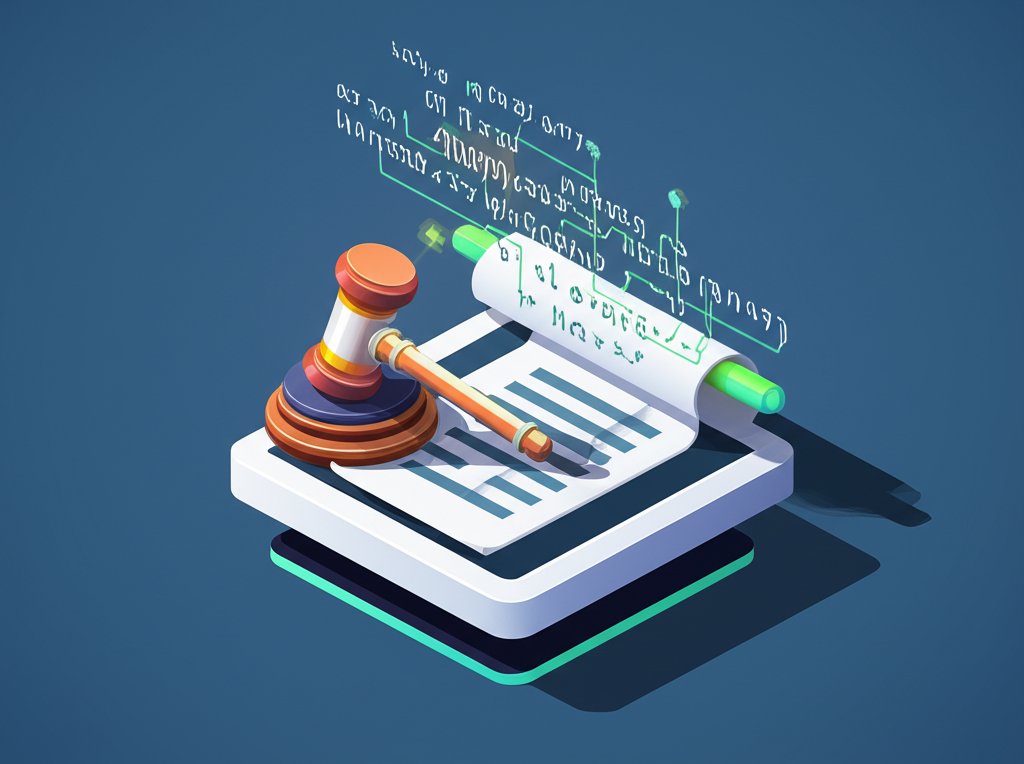Ever found yourself staring at a legal document, a court filing, or even a news article, only to be baffled by an alphabet soup of shorthand? You’re not alone. Understanding lawyer abbreviations and broader legal abbreviations is a critical skill, whether you’re a law student, a paralegal, a business professional, or simply a curious citizen. This comprehensive guide is designed to demystify legal jargon, equipping you with the knowledge to confidently decode common terms like Atty. and Esq., and much more. Dive in and unlock the secrets of legal communication, transforming confusion into clarity.
Decoding Core Lawyer Abbreviations: Atty., Esq., and J.D.
When encountering references to legal professionals, certain abbreviations appear time and again. These aren’t just random letters; they convey crucial information about a person’s qualifications, role, and even the formality of the communication. Mastering these foundational lawyer abbreviations is your first step to understanding legal discourse.
Atty. Explained: The Common Shorthand for “Attorney”
Atty. is the most straightforward and widely recognized abbreviation for “Attorney.” It’s an informal yet fully acceptable shorthand used in a variety of contexts.
- Meaning and Usage: “Atty.” stands for “Attorney,” a legal professional qualified to represent clients in legal matters, advise on legal rights, and appear in court. It’s suitable for casual correspondence, internal office communication, or even in crosswords and general reference. Its plural form is “Attys.”
- When to Use It: You might see “Atty. Smith” on an office memo, in a directory listing, or even on a business card for a more concise presentation. It conveys the individual’s role directly without excessive formality.
- Distinction from “Attorney-at-Law”: While “Atty.” abbreviates “Attorney,” the full term “Attorney-at-Law” specifically designates a person licensed to practice law in a given jurisdiction. “Atty.” implies this full professional title and capacity.
Esq. Demystified: The Formal Courtesy Title for Lawyers
The abbreviation Esq. (short for “Esquire”) carries a distinct air of formality and tradition. Unlike “Atty.”, which precedes a name, “Esq.” follows it.
- Meaning and Placement: “Esquire” is a courtesy title appended to a lawyer’s name (e.g., “Jane Doe, Esq.”). It signifies that the individual is licensed to practice law. Historically, “Esquire” marked a gentleman of high social standing, often one in service to a knight or a member of the gentry. In the legal context, it evolved to denote legal professionals.
- Historical Context and Modern Usage: While its use has seen some decline, “Esq.” is still prevalent in formal legal correspondence, court documents, and official letterheads. It’s a mark of respect and a nod to legal tradition. Many lawyers, particularly in the US, use it as a professional designation to indicate their status as a qualified attorney.
- Key Distinction: Crucially, you would typically use either “Atty.” or “Esq.”, but not both. “Atty. John Doe, Esq.” would be redundant and incorrect. “Esq.” is a title, not an abbreviation for “Attorney” in the same way “Atty.” is. It’s also generally reserved for practicing attorneys, not just anyone with a law degree.
J.D.: The Academic Foundation, Not a Professional Title
While “Atty.” and “Esq.” speak to a lawyer’s professional standing, J.D. refers specifically to their academic accomplishment.
- Meaning (Juris Doctor): J.D. stands for “Juris Doctor,” a professional doctorate and the standard law degree in the United States. It indicates that an individual has completed a rigorous program of legal education at an accredited law school.
- What It Signifies: Earning a J.D. is a fundamental prerequisite for becoming a lawyer in most U.S. jurisdictions. It proves the individual has the foundational knowledge of the law.
- J.D. vs. Practicing Attorney: This is a vital distinction often missed. Holding a J.D. degree does not automatically mean someone is a practicing attorney. To practice law, a J.D. holder must also pass the bar examination in their desired jurisdiction and be admitted to that state’s bar. Think of it like an “M.D.” degree; while it signifies medical education, a doctor isn’t licensed to practice medicine until they complete residencies and pass licensing exams. Therefore, “John Smith, J.D.” indicates education, while “John Smith, Esq.” or “Atty. John Smith” indicates a licensed, practicing attorney.
Beyond the Basics: Essential Legal Abbreviations You Need to Know
Beyond the primary designations for lawyers, the legal field is replete with a vast array of other legal abbreviations used in documents, case citations, statutes, and general legal discourse. Understanding these is crucial for anyone navigating the legal landscape.
Common Legal Terms and Their Abbreviations
Many everyday legal concepts and entities have their own standardized abbreviations:
- et al.: Short for “et alii” (Latin for “and others”). Used when listing multiple parties or authors, typically after the first one or two names (e.g., “Smith v. Jones et al.”).
- i.e.: Short for “id est” (Latin for “that is” or “in other words”). Used to clarify or rephrase a statement.
- e.g.: Short for “exempli gratia” (Latin for “for example”). Used to introduce examples.
- Inc.: Incorporated. Denotes a corporation.
- Corp.: Corporation. Another common abbreviation for a corporate entity.
- LLC: Limited Liability Company. A business structure offering personal liability protection.
- P.C.: Professional Corporation. A corporate structure often used by licensed professionals like lawyers or doctors.
- P.A.: Professional Association. Similar to a P.C., used by licensed professionals.
- vs. / v.: Versus. Used in case names to separate the parties (e.g., “Roe v. Wade”).
- re: In the matter of; concerning. Often used in the subject line of legal letters or documents (e.g., “Re: Client’s Estate”).
- D.B.A.: Doing Business As. Indicates a trade name used by a company or individual (e.g., “John Doe D.B.A. Quality Legal Services”).
- P.S.: Professional Service. Sometimes seen in company names, similar to P.C. or P.A.
Courtroom and Procedural Abbreviations
Legal proceedings and documents frequently use abbreviations specific to court systems, case types, and procedural rules.
- Crim.: Criminal. Refers to criminal law or proceedings.
- Civ.: Civil. Refers to civil law or proceedings.
- Pl.: Plaintiff. The party bringing a lawsuit.
- Def.: Defendant. The party being sued or accused.
- App. (Appellant/Appellee): Appellant is the party appealing a court decision; Appellee is the party against whom an appeal is taken.
- S.Ct.: Supreme Court Reporter. Used in citations for U.S. Supreme Court cases.
- F.Supp.: Federal Supplement. Used in citations for U.S. District Court opinions.
- U.S.C.: United States Code. Refers to the compilation of federal statutes.
- Fed. R. Civ. P.: Federal Rules of Civil Procedure. The rules governing civil cases in federal courts. (Similarly, you’ll find “Fed. R. Crim. P.” for criminal procedures, “Fed. R. Evid.” for evidence, etc.)
- Cir.: Circuit. Used in federal appeals court citations (e.g., “9th Cir.” for the Ninth Circuit Court of Appeals).
- Dist.: District. Used for district courts.
- A.L.R.: American Law Reports (a collection of annotations).
- C.F.R.: Code of Federal Regulations (administrative law).
- F.2d, F.3d, F.4th: Federal Reporter (second, third, fourth series), for federal appellate court decisions.
Understanding these context-specific abbreviations provides immediate insight into the nature of the legal document or discussion.
As you learn to navigate these abbreviations, remember that understanding employment law and its associated paperwork, often handled by an attorney, is crucial for business success, and Lola can further streamline your HR processes.
The Nuances of “Lawyer Abbr.”: When Context is King

The search term “lawyer abbr.” often reflects a desire to understand the various shortcuts and titles associated with legal professionals. While “Atty.” is the most direct answer, the full picture involves discerning between a “lawyer” and an “attorney,” and how different abbreviations fit into this professional spectrum.
Lawyer vs. Attorney: A Critical Distinction for Abbreviations
While often used interchangeably in everyday language, there’s a nuanced distinction between “lawyer” and “attorney” that impacts the appropriate use of lawyer abbreviations.
- Lawyer: Generally refers to anyone who has earned a law degree (J.D.). This individual has the academic qualification but may or may not be licensed to practice law.
- Attorney (or Attorney-at-Law): This term specifically refers to a lawyer who has passed the bar exam in a particular jurisdiction and has been admitted to the bar, thereby becoming licensed to practice law, represent clients in court, and provide legal advice. All attorneys are lawyers, but not all lawyers are attorneys.
This distinction is crucial when using abbreviations:
Choosing the Right Abbreviation: Professionalism and Etiquette
Selecting the correct lawyer abbr. reflects professionalism and an understanding of legal etiquette.
- Formality Level:
- “Esq.” is the most formal, often used in official correspondence, legal filings, and formal addresses.
- “Atty.” is less formal but perfectly acceptable for general professional use, business cards, and internal communications.
- “J.D.” is primarily an academic credential, typically used after a name in academic contexts or when emphasizing educational background.
- Avoiding Redundancy and Error: Never combine “Atty.” and “Esq.” for the same person. When in doubt about formality or clarity, it’s always best practice to spell out the full title, “Attorney” or “Esquire,” especially in highly formal or sensitive communications. For instance, “Ms. Sarah Chen, Attorney-at-Law” leaves no room for ambiguity.
- Target Audience: Consider who will be reading the document. Legal professionals will understand the nuances, but for the general public, full words might be clearer.
Advanced Legal Degrees and Specialized Designations
The world of legal education and practice extends beyond the core lawyer abbreviations. Understanding advanced degrees and specialized designations further enriches your ability to decode legal jargon and appreciate the diverse expertise within the legal profession.
Expanding Your Lexicon: LL.M., LL.B., and S.J.D.
Beyond the J.D., other academic degrees signify deeper or specialized legal study.
- LL.M. (Legum Magister / Master of Laws): This is a post-J.D. master’s degree in law, allowing lawyers to specialize in a particular area (e.g., Tax Law, International Law, Environmental Law). An LL.M. often indicates advanced expertise in a niche field.
- LL.B. (Legum Baccalaureus / Bachelor of Laws): Historically, the LL.B. was the standard first law degree in many common law countries, including the U.S. before the J.D. became prevalent. It is still the primary law degree in countries like the UK, Canada, and Australia. If you see an LL.B. after someone’s name, especially from an older generation or an international context, it indicates their foundational legal qualification.
- S.J.D. (Scientiae Juridicae Doctor / Doctor of Juridical Science): This is the highest academic degree in law, equivalent to a Ph.D. in other disciplines. It typically involves extensive research and dissertation, preparing individuals for careers in legal academia or advanced policy work. Someone with an S.J.D. is usually a legal scholar or professor.
Practice Area and Jurisdiction-Specific Abbreviations
Many fields of law and legal jurisdictions have their own unique or frequently used abbreviations.
- Practice Area Examples:
- IP: Intellectual Property (covering patents, trademarks, copyrights)
- Crim. Def.: Criminal Defense
- Fam. Law: Family Law
- Corp. Law: Corporate Law
- Env. Law: Environmental Law
- Torts: Tort Law (civil wrongs)
- Con. Law: Constitutional Law
- Jurisdiction-Specific Terms: Many states and specific courts have their own sets of abbreviations for statutes, rules of procedure, or legal reporters. For example, “Cal. Rptr.” for California Reporter or “Tex. Civ. Prac. & Rem. Code” for the Texas Civil Practice and Remedies Code. These are highly localized and often require reference to a specific jurisdiction’s style guide or legal dictionary.
- International Legal Abbreviations: While this guide focuses primarily on U.S. legal abbreviations, it’s worth noting that international law uses its own extensive set of acronyms for treaties, organizations, and legal bodies (e.g., ICC for International Criminal Court, ICJ for International Court of Justice, UNCLOS for United Nations Convention on the Law of the Sea).
Actionable Tips for Decoding Legal Jargon Like a Pro
Understanding legal abbreviations isn’t just about memorization; it’s about developing strategies to quickly and accurately interpret complex legal text. Here are some actionable tips to empower your decoding skills.
Leverage Online Legal Dictionaries and Databases
Your most powerful allies in demystifying legal jargon are specialized reference tools.
- Black’s Law Dictionary: Considered the definitive legal dictionary in the United States, it provides comprehensive definitions and often includes common abbreviations. Available in print and increasingly online.
- Cornell Law School’s Legal Information Institute (LII): A fantastic free online resource with a vast legal encyclopedia, definitions of legal terms, and access to U.S. law.
- Specialized Legal Glossaries: Many legal websites, particularly those focusing on specific practice areas (e.g., intellectual property, family law), offer their own glossaries of terms and abbreviations relevant to their field.
- Google Search (with caution): A quick search for “what does [abbr.] mean in law” can often yield immediate results, but always cross-reference with authoritative sources if accuracy is paramount.
Pay Attention to Contextual Clues
Abbreviations rarely appear in a vacuum. The surrounding text, the type of document, and the overall subject matter provide invaluable clues.
- Document Type: Is it a court opinion, a contract, a legal memo, or a news article? Each context might favor different types of abbreviations. For example, case citations (like “505 U.S. 833 (1992)”) are found in court opinions, while corporate designations (like “LLC”) are common in business contracts.
- Sentence Structure: If an abbreviation is used in place of a noun, think about what noun would make sense. If it modifies a name, consider if it’s a title or a degree.
- Full Spellings Nearby: Sometimes, an author will define an abbreviation upon its first use (e.g., “The Uniform Commercial Code (UCC) governs these transactions…”). Look for these initial definitions.
Don’t Hesitate to Ask for Clarification
In professional or client-facing situations, clarity trumps guesswork.
- Legal Professionals: If you’re working with a lawyer or legal team, it’s perfectly acceptable, and often encouraged, to ask for clarification on any abbreviation or term you don’t understand. Misinterpretations can have serious consequences.
- Internal Teams: Within a firm or legal department, establish a culture where questions about jargon are welcome. This promotes accuracy and reduces errors.
Conclusion
Navigating the intricate world of legal language can initially seem daunting, but mastering lawyer abbreviations and legal abbreviations is an achievable and incredibly valuable skill. From understanding the nuances between Atty. and Esq., to recognizing the academic significance of a J.D., to deciphering complex court citations, you now have the tools to approach legal jargon with confidence.
By leveraging dedicated resources, paying close attention to context, and never hesitating to seek clarification, you can effectively decode legal shorthand. This ability not only enhances your comprehension of legal documents and discussions but also empowers you to communicate more professionally and effectively within the legal sphere. Step forward and master legal language – the secrets of legal jargon are now yours to unlock!
FAQ Section

Q: What is the primary difference between “Atty.” and “Esq.”?
A: “Atty.” is an abbreviation for “Attorney” and typically precedes a lawyer’s name (e.g., Atty. John Doe). It’s generally more informal. “Esq.” (Esquire) is a courtesy title that follows a lawyer’s name (e.g., Jane Doe, Esq.) and is considered more formal and traditional. Both indicate a licensed attorney, but “Esq.” is often preferred in formal legal correspondence.
Q: Does “J.D.” mean someone is a practicing lawyer?
A: No, not necessarily. “J.D.” stands for “Juris Doctor,” which is the academic law degree. While earning a J.D. is a prerequisite for practicing law in the U.S., an individual must also pass the bar examination in a specific jurisdiction and be admitted to that state’s bar to officially become a licensed, practicing attorney.
Q: Can I use “Lawyer abbr.” in a formal document?
A: The term “Lawyer abbr.” itself is a descriptive search query, not a formal abbreviation to be used in a document. When referring to the abbreviation for a lawyer within a formal document, you would typically use “Atty.” or “Esq.” as appropriate, or simply spell out “Attorney.”
Q: Why do lawyers use so many abbreviations?
A: Lawyers use abbreviations for several reasons:
Q: What are some common general legal abbreviations I should know?
A: Beyond lawyer-specific titles, some common legal abbreviations include:










